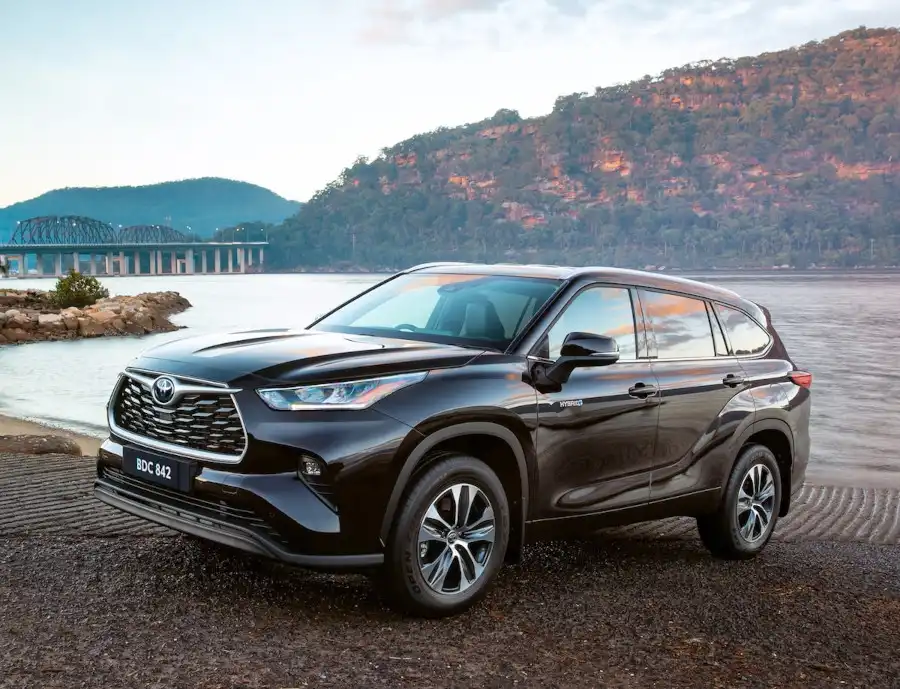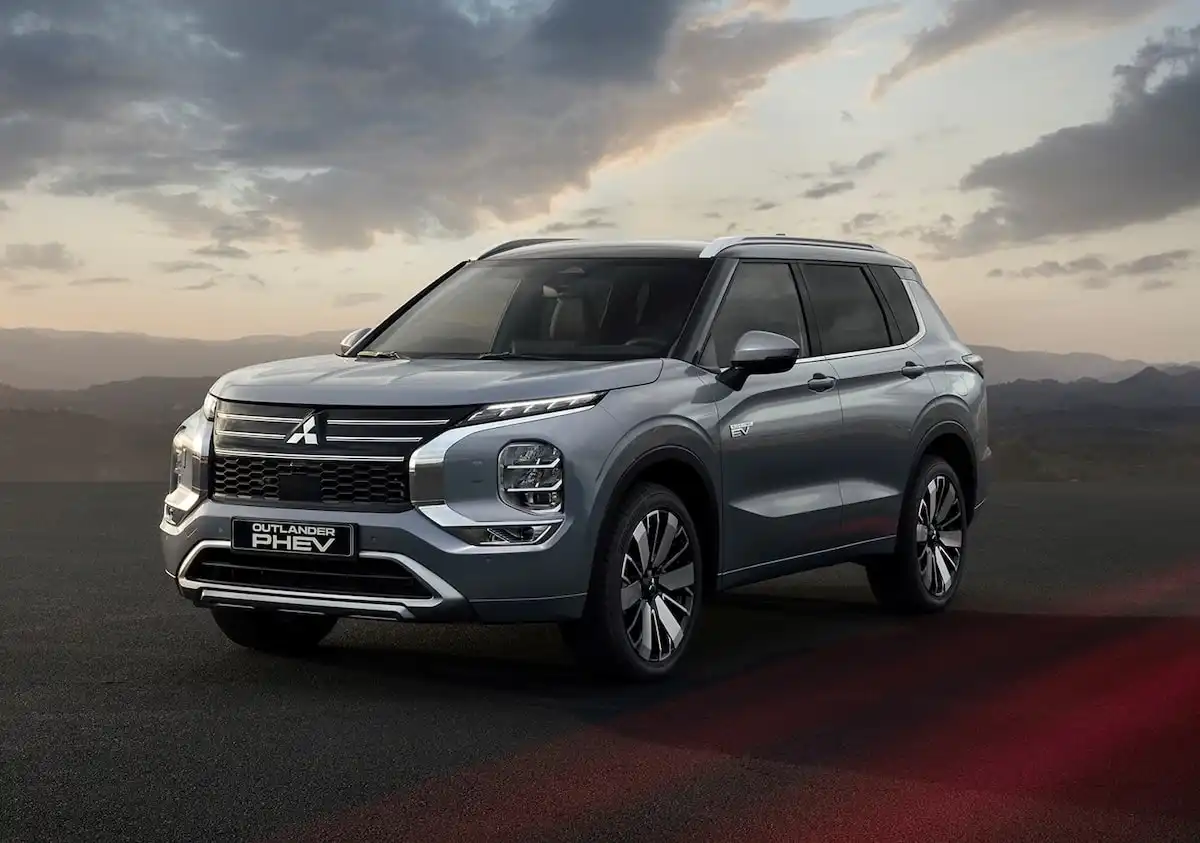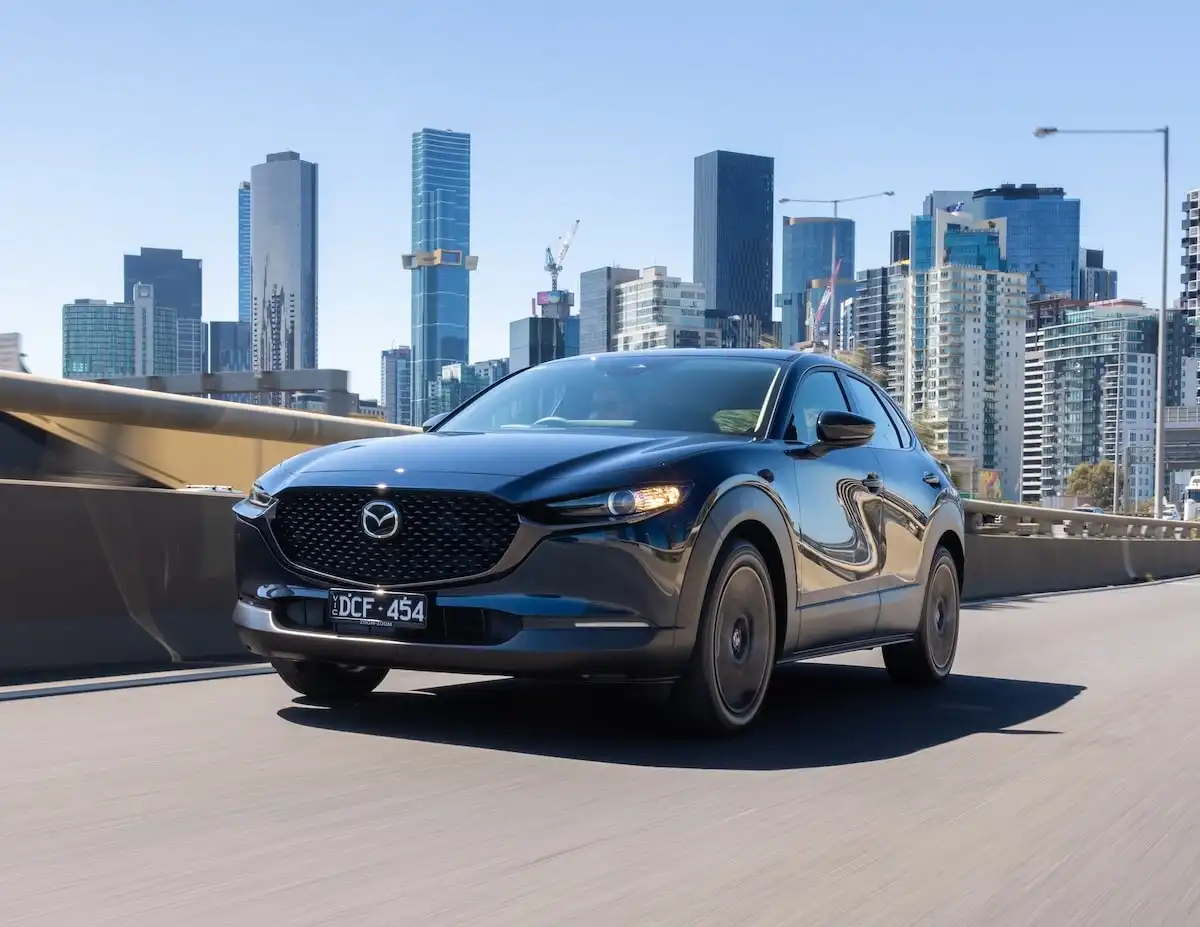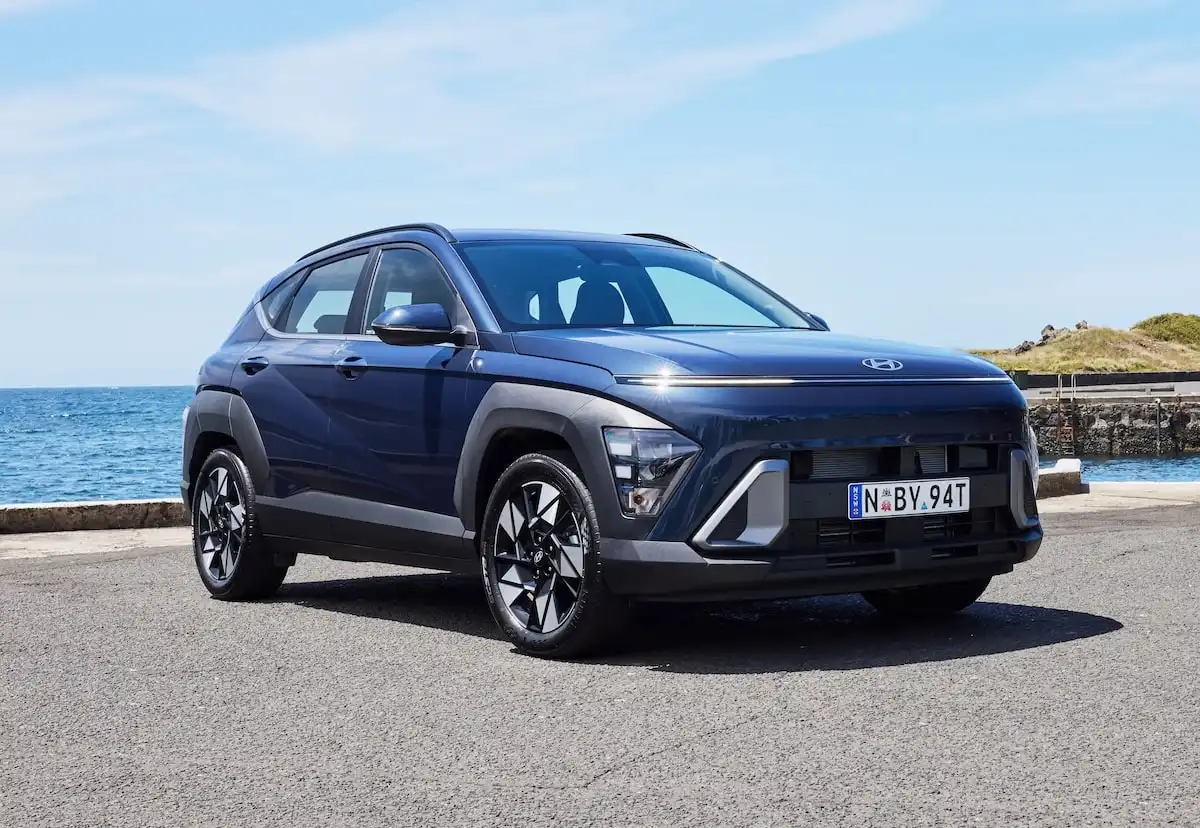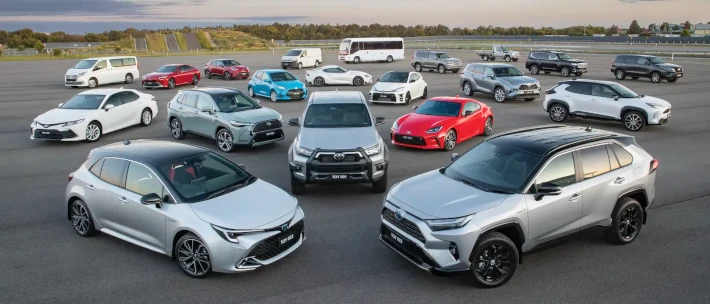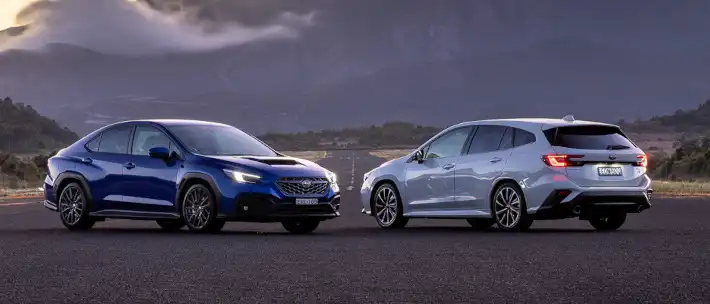It’s an unfortunate reality that a number of car dealerships can take advantage of people’s ignorance when it comes to buying a new car. With our list, though, you’ll be better equipped with a list of questions you should ask when buying a new car, to help you find the right vehicle fitted with the right features, at the perfect price.
1. Is this vehicle the latest generation, or is going to be replaced soon?
One of the most important factors to note here is whether or not the vehicle you’re looking at is a latest-generation vehicle, so you can tell if it’s due to be replaced in the very near future. While yes, every car is updated essentially every year, manufacturers only replace a vehicle’s generation every decade or so.
It’s essential you find out whether it’s set to be replaced in the near future, so you can benefit from an updated platform, the latest entertainment and safety technology, or the best fuel economy possible. Jumps from model year-to-year are dwarfed by the updates on offer in a new generation vehicle, so don’t be afraid to ask or do your research as to when your preferred car is due for a new generation.
Just a note here that you can also save yourself a considerable amount of money, or use the impending death of an outgoing-generation vehicle as a bargaining chip when negotiating on price.
2. What is the Fuel Economy Like?
The benefits of purchasing a car with class-leading fuel economy extend further than just how far you can travel between fill-ups. Most new cars are powered by modern engines that have been designed to use as little fuel as possible, however, there are a number of older models that still use a fairly basic engine design that doesn’t give the owner much in the way of fuel economy.
Opting for one of the more economical options on your shortlist will help you save thousands over the lifespan of your vehicle, and reduces the overall environmental impact of your vehicle’s emissions as you drive around town. As the world becomes more aware of rising carbon emissions, it’s worth your time investing in companies that are responding to the challenges of global warming and have researched, designed and installed new, economical engines in their lineup.
3. Is There a Plug-in Hybrid Variant Available?
On the note of fuel economy, it’s worth taking into account that major manufacturers are beginning to roll out plug-in hybrid variants of their most popular models. This is in response to both customer demand, and increasingly stringent government policy in key markets like Europe. The good news for you, the car buyer, is that you can soak up the style of your preferred vehicle of choice while being powered by a sophisticated hybrid engine that not only reduces your fuel economy, it can also make the car more fun to drive.
It’s commonplace to see a plug-in hybrid variant of popular passenger cars sitting in a manufacturer’s lineup these days, so don’t be afraid to ask whether they’ve got a hybrid in stock.
4. What Customer Reviews and Mechanical Reports are Available Online?
Once you’ve whittled down your shortlist, it’s time to do some more research. Most of us won’t go to a new restaurant without reading a review, so why would the purchase of a new car be any different? There’s a huge number of resources out there from new and long-term owners of specific cars, with users mapping out the somewhat hidden benefits and disadvantages of certain vehicles.
Official reviews can be limited in terms of actually living with a vehicle for a long period of time, so getting feedback from owners of specific vehicles can help you identify some potential problem areas before you’ve finalised your purchase. Search for forums dedicated to that manufacturer and model, as well as any mechanical reports that might identify a trend specific to that vehicle.
5. What is the Warranty Offered, and Can I Extend the Terms?
Long-term ownership programs like lengthy warranties and capped-price servicing packages can, and will, save you thousands over the lifespan of a vehicle, so long as you’ve picked a manufacturer that offers decent terms. The typical warranty here in Australia sits at around five-years, however, some premium manufacturers offer lesser warranty periods of just three-years.
Some of the best warranties in Australia stretch out from five years anywhere to seven and ten-year periods of coverage. This means that any problems that impact your vehicle stemming from manufacturer error will be covered free of charge.
It’s also worth noting that a number of manufacturers offer the option of an extended warranty at the time of your purchase - or for a period after the initial purchase - which often proves a wise investment. Giving your vehicle the maximum period of warranty coverage should be a top priority while looking at your new vehicle, due to the sheer amount of money and stress it can alleviate down the line.
6. What Features Does the Car Come With As Standard?
It’s not unusual for car buyers to step into a dealership looking for a base model vehicle, only to leave having been sold a mid-range or range-topping vehicle. The majority of this temptation stems from the features that manufacturers pack into their more expensive variants, and how hard they can be to resist when you’re already spending a huge amount of money.
A piece of advice to hold onto in this context is that most modern entry-level vehicles often come packaged with a handsome amount of equipment that will keep most Australian families happy. It’s worth asking yourself and your partner whether or not you really need more premium features, and if the answer is yes, whether or not they’re worth the investment.
Keep in mind that a higher-spec model will retain its value better over time, compared to an entry-level vehicle, but this, again, is a question that only you and your circumstances can answer accurately.
7. How Quickly Will My New Car Depreciate?
Sadly, new cars aren’t a great investment, but there are ways to minimise your losses over time. Typically, the value of a new vehicle can drop as much as 58% in the first three-years of ownership, which plateaus to around 40% over five-years of ownership. Vehicle depreciation is the single largest hit to your wallet over the period of ownership, but this can be minimised with a few tricks.
Opting for a vehicle that you think will remain in-demand in three or five-years time is a great way to minimise the depreciation, as well as choosing a vehicle from a reputable manufacturer that will likely retain their market value as time passes. Also, ensuring that the vehicle has been well-maintained is essential to optimising its resale value over time, as well as keeping the condition of the bodywork and interior to a high standard.
There’s a number of tools online that can give you a fairly accurate idea of how much certain manufacturers and models depreciate over time, so factor this into your research as your purchasing a new car. OnlineAuto’s team of expert car buyers can also help guide your search toward vehicles that are known to depreciate less over a five-to-ten year period compared to their rivals.
8. How Much Money Should I Spend on a New Car?
This is, of course, a subjective question that only you can answer definitively. However, it’s advised that you should not spend more money than you can afford in order to step into your dream vehicle. Generally, best financial practices state that you should be willing to hand over anywhere between 15-20% of your annual income on a new vehicle, if you’re purchasing outright.
If you’re financing your new vehicle, make sure you’ve had a close look at the terms of the agreement, as well as the interest rate over time. As a reminder, OnlineAuto’s team of car buyers can help you secure some of the most attractive finance packages on the market, but we will never pressure you into spending more money than you’re prepared to.
9. Can I Take it For a Long Test Drive?
One of the best ways to get a clear picture of how a vehicle will hold up to your daily routine is to put it through its paces on that exact routine. If you’re taking a new car for a test drive, it’s impossible to get a feel for everything in the space of 30-minutes, which is why we encourage you to take the vehicle for the longest test drive possible.
If you have the opportunity to replicate parts of your commute in a new vehicle, you’ll be able to compare any major differences and get a better idea of where it excels or potentially falls-short of your current vehicle. While it might be an uncomfortable question to ask, we’d encourage you to ask for the maximum-length test drive that is available. Remember, you’re making a huge investment, so you want to have all the knowledge and experience under your belt before you sign the dotted line, and a long test drive helps immensely with this.
10. Can I Get My New Car Delivered?
Once you’ve run through all the motions, it’s now time to take delivery of your new vehicle. Thankfully, one aspect of car buying that has been revolutionized in recent years is the advent of new car deliveries. Before the pandemic hit, purchasing a car was a significantly more time-consuming process than it is today. In 2021 and beyond, it’s entirely possible to arrange the delivery of a new vehicle to your home, or workplace, especially if you make your purchase through something like OnlineAuto’s Car Buying service. Not only can we deliver your new vehicle, we can also even arrange a test drive of the vehicles on your shortlist from the comfort of home, or your workplace, as well as streamline the process of trading in your used vehicle for your brand new dream car.
Need help narrowing down your choices?
Get in touch with one of our Car Buying Specialists today
Request a quote
